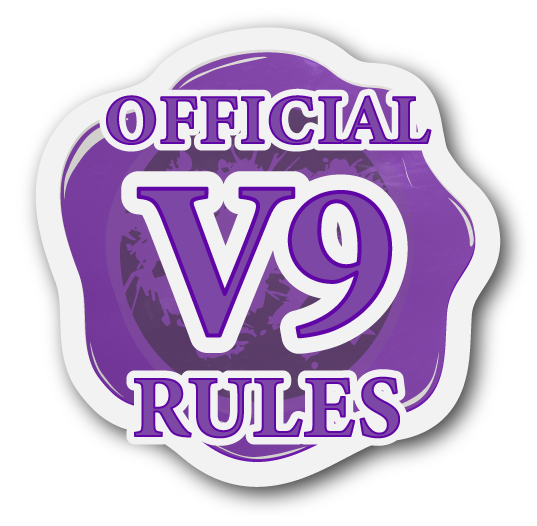V9: Declarations
From AmtWiki
This page is part of the Official Amtgard V9 Alpha-Playtest Rulebook.
- The Amtwiki is the official home and primary source for Amtgard V9 Rules as of February 25, 2023.
- These rules are currently in Open Alpha Playtest. See the Playtest Disclaimer for more details.
- To learn more about Amtgard V9 Development, please visit Amtgard.com.
- To view the current Amtgard V8 ruleset, please see the Amtgard V8 Rulebook.
Declarations
Declarations are mandatory spoken statements used to inform other players about the state of the game. All forms of required communication other than casting should be treated as a declaration and follow the rules listed below.
- The goal of a declaration is to be prompt and ensure other players understand what is being declared.
- Declarations are not incantations. Unless specifically noted, precise wording is not required as long as the relevant players understand what is being conveyed. With that in mind, players should act in good faith when it comes to mispronunciations or potentially misleading declarations.
- Declarations do not interrupt chants, incantations, or other game mechanics that require speech; however all timing rules for those mechanics must still be adhered to.
- For example, you cannot have a gap of more than 2 seconds if you declare something in the middle of an incantation.
- Declarations do not count as speaking in-game and will not trigger roleplay effects that are sound activated.
- For example, a player declaring that they are Frozen should not wake the sleeping dragon.
- Players are always allowed to make declarations regardless of their in-game ability to speak. They may also make physical gestures to aid with this communication, regardless of their in-game ability to act. This should all be done in good faith. Players should not use these rules as a means to gain a gameplay advantage in a situation where they could not otherwise speak and/or move.
- For example, a Frozen player can make a shivering motion and shout ‘Frozen!’ despite not being allowed to speak or act in-game; however they cannot shout 'Frozen' in different tones as a way to warn their team about an impending flank attack.
- Declarations must be loud and clear enough to be heard and understood within 50ft or by the specific players that need to hear it, whichever is closer. If a declaration is just a general proclamation, such as declaring 'Alive!" when Respawning, it must be heard and understood clearly out to 20ft.
- Players may openly request other participants to declare certain types of information. That information should be provided as soon as is reasonable and both sides of this exchange must act in good faith and avoid exploiting the exchange for gameplay advantage.
- Players may request declarations for anything that is explicitly public information. This includes, but is not limited to, the following:
- Armor coverage and maximum armor point values for each location
- Wounds
- Enchantments on the player and/or a brief summary of their effects
- A brief summary or effect description for any visual indicators on a player.
- Status effects
- The effects of any Chants a player is maintaining.
- Strike Enhancements
- Destroyed equipment
- Immunities and Resistances
- Class and level
- Whether they are Alive or Dead
- "What does that do?" (Asking a caster or attacker for information about something they just did to you.)
- The following information is private information. It can be requested however players are only obligated to answer when asked by the Reeves and Rules Authorities for the activity in question::
- Armor points remaining on damaged hit locations
- How many shield-crushing strikes a shield has already received.
- Class customization choices and spell lists
- Ability maximums and how many uses are remaining.
- Time remaining on status effects
- Rest counts
- Death counts
- Players may request declarations for anything that is explicitly public information. This includes, but is not limited to, the following:
- When declaring variable effects that had a choice, the player must declare the chosen choice or a summary of its effects.
- For example, declaring your enchantment as simply “Adaptive Blessing” is not sufficient because it does not convey the choice. “Adaptive Blessing Stopped” or “Resistant to Stopped” would be sufficient.
- Due to the chaos of live combat, declarations can often be difficult to enact and even harder to regulate. Therefore, it is important for participants to set their expectations accordingly and do their best to help convey information as fairly and effectively as possible.
Glossary Click your browser's BACK button to return to the page you came from
